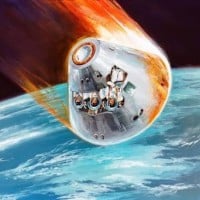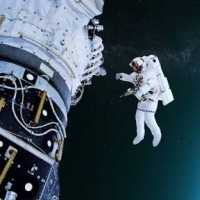Top 10 Major Risks in Space Travel
Space exploration is risky, but that didn't stop us humans from venturing out into space. Here are the risks involved in space exploration.Astronauts are exposed to approximately 50-2,000 millisieverts (mSv) while on six-month-duration missions to the International Space Station (ISS), the moon, and beyond. The risk of cancer caused by ionizing radiation is well documented at radiation doses beginning at 50 mSv and above.
You're exposed to 5-G force during takeoff. There's a high risk of blackout during that period.

This happened on February 1, 2003. The Space Shuttle Columbia disintegrated upon re-entering Earth's atmosphere, killing all seven crew members.

This is a relatively huge risk during spacewalks, and the ISS (International Space Station) has sustained considerable damage due to meteors hitting its vulnerable parts.
Moon dust is dangerous. Each mote is like a tiny shard of glass. There's no wind or rain to soften the edges of lunar soil. During the Apollo missions, it jammed equipment and got stuck in the seals of space suits, causing a serious loss of pressure.

Although this has a low probability, it is still a huge risk that astronauts face, considering the immense consequences.
The musculoskeletal system allows the human body to physically move and exert forces on its environment.
Whereas on Earth, the musculoskeletal system has to support the weight of the body, and the postural bones and muscles are permanently loaded by gravity, this is not the case in weightlessness in space. All physical activities are less demanding, the musculoskeletal system is unloaded.
As a result, exposure to microgravity leads to bone and muscle loss.
Some astronauts have developed serious, permanent vision problems from their time in space. The longer the mission, the greater the chance of change. Of the 300 US astronauts examined since 1989, vision problems developed in 29 percent of those on two-week missions and 60 percent of those who spent several months on the International Space Station.
Doctors at the University of Texas performed brain scans on 27 astronauts who had been in space for over a month. In over 25 percent of them, the back of one or both eyes had flattened.
Scientists believe this may be another effect of the rise of fluid that occurs in a person's body in a weightless, or a microgravity, environment.
Some Russian cosmonauts and other astronauts have experienced partial to permanent deafness during space travel.
During launch, you feel up to 3-g for a sustained period of time, which is beyond extreme, causing and aggravating motion sickness.
In space, there's 0-g from freefalling around Earth, and there's no up or down reference, so all of that will cause and seriously aggravate motion sickness.
It's been known that even those who didn't have motion sickness before may still get it during space travel.
And the astronauts may still experience it for a while even after they're back on Earth.
This is a very low possibility, but if it happens, you're pretty much doomed.